(You may find the contents of this story upsetting.)
This is Kerry’s story, told in her own words:
“I’ve got my own place now. I’ve been living here for five weeks. I was quite nervous, because I don’t want to mess it up, and I’d never lived on my own before. I quite like it now. I wouldn’t want to go back on the streets.
I had a baby when I was 18. My mum reported me to Social Services because she thought I weren’t looking after her properly. She thought it’d be better if my daughter lived with her. Even though I don’t get on with my mum, I prefer my baby to live there than go into care. We haven’t really talked that much since. We speak on the phone and that, but I don’t see my baby. She don’t know that I’m her mum, she thinks of my mum as her mum. I think that’s what made me leave really, because obviously I was upset.
I came down to London with my ex-boyfriend. I’d never slept rough before. As we were walking about we saw people begging, and then when it was time to find somewhere to sleep, we’d walk past some shops and there’d be people bedding down. It was quite scary, but then I got used to it, got to know them.
I was with my boyfriend for a couple of years, but he was abusive. When I was on my own, it was scary at first. I slept behind Starbucks, and I slept on a walkway near the shops – so if people walked past they could see me sleeping there. It’d be really noisy. Some people would ask me why I was on the streets and if I wanted any help. I used to tell them to go away or just say ‘No, I’m fine’. I didn’t really like telling people my business.
If it was cold, then I was freezing. I used to put cardboard down, because it makes it a tiny bit warmer. If I had a blanket, I’d put it right over my head, but if not it would just be the cardboard and a dustbin bag. I used to put my legs in the bag and if I had a jacket I’d put that over my head. I’d still be freezing, but better than just laying on concrete.
The main horrible thing was going through bins when you was hungry. You do what you’ve got to do to get some food really. It’s not nice – it’s degrading. People used to go past and look at you like you’re disgusting. Until they’ve gone through the experience they shouldn’t judge you.
At times I would be sitting, begging for hours. I used to hate taking money off people. I used to hate lying to them. Obviously, you are not going to say ‘Can you spare some money for drugs?’ because they wouldn’t give it to you. You’d have to say, ‘I want it for food’.
I’ve been using drugs for years. I started the heroin because it makes you go to sleep. I used it to keep warm, but then once you get hooked you have no choice [but] to get the money to get some. That was all I used to go and beg for. That’s what I used to do every day, it was my routine. Getting up, going begging, going to score, coming back, begging again. Never used to eat, nothing like that. I didn’t like what I was doing, but I just couldn’t stop.
I was a prolific beggar. I’ve been to prison a few times for begging. I kept breaking my ABC order [acceptable behaviour contract]. I liked it in there though. The most I got was 60 days and I got my own cell, so nice and warm.
The outreach team kept coming to offer me accommodation and help but I didn’t want it. I didn’t want them to get me into a hostel because I’d got too used to it on the streets. I haven’t got much confidence around other people. I like being on my own, I like my own company really. So I think that was it as well.
St Mungo’s gave me loads of support. If they had just given up I wouldn’t have got help on my own. I was worried about getting the ASBO for begging and going to prison for five years, so I thought I might as well give it a go. So I think it was good they keep coming back to find me and offer me help.
I went to one hostel but I didn’t like it and went back on the streets for a couple of months. It was too big. It was mainly the people. Them kind that go out looking for trouble. It didn’t feel right there. I know it sounds stupid, just didn’t feel like I settled there. In the end I went into a small hostel and I don’t know what made it happen but I liked it in the end. I was in there over a year and a half.
I would tell people not to turn down the help. I don’t know what they’re going through, but I was stupid not to accept the help. I know I weren’t ready for it, but I feel now that it was stupid not to. It was only when I moved into the hostel that I really started to change my life. I went back on my methadone and I’m stable now. I started eating more. I started keeping my appointments.
And then I applied for a flat and was accepted. All I had before I moved in here was that telly that the spot [outreach] team bought me when I moved into the hostel. All I need is the carpets, a washing machine and a cooker. I have everything else really. So once I get all that it will be more homely.”
(All material on this page is copyright of Georgina Cranston. Text editing by Sarah Carrington.)

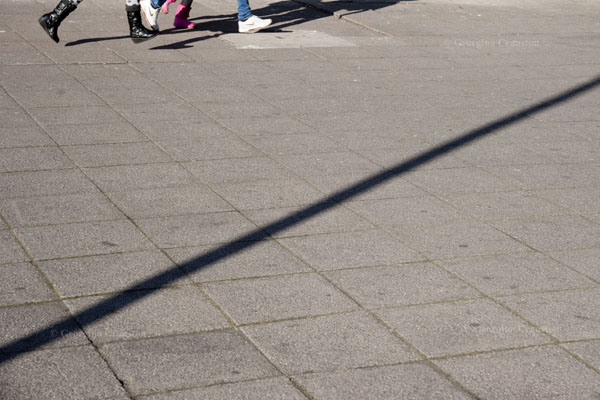
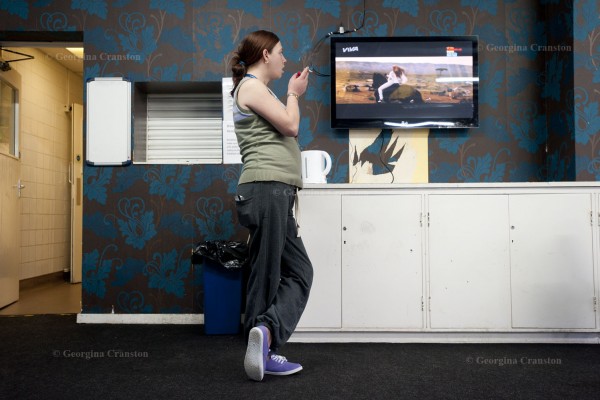

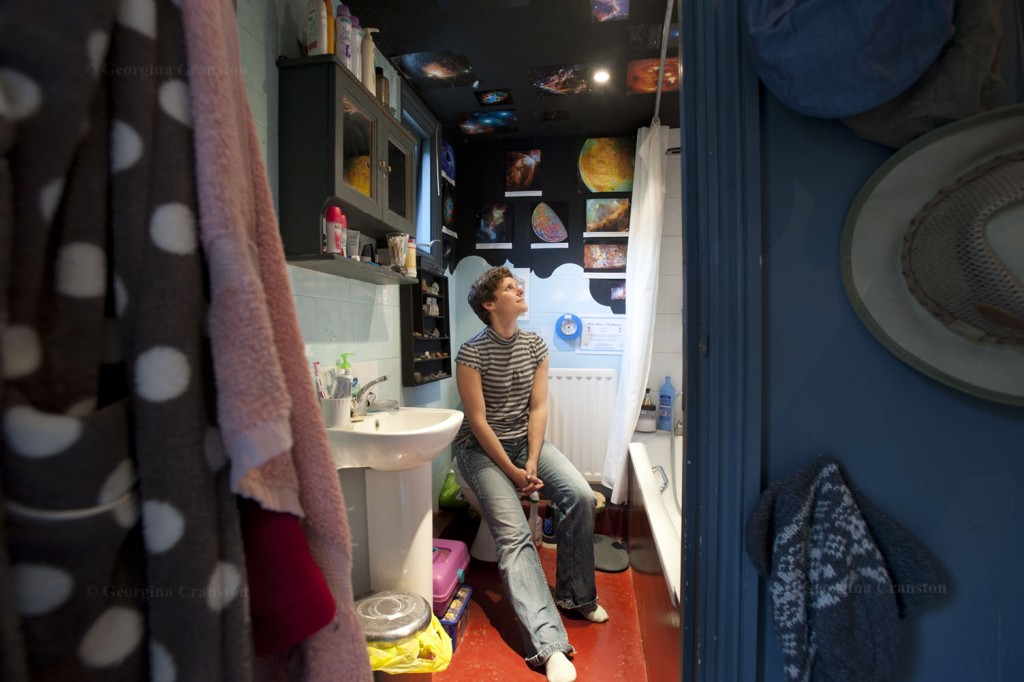
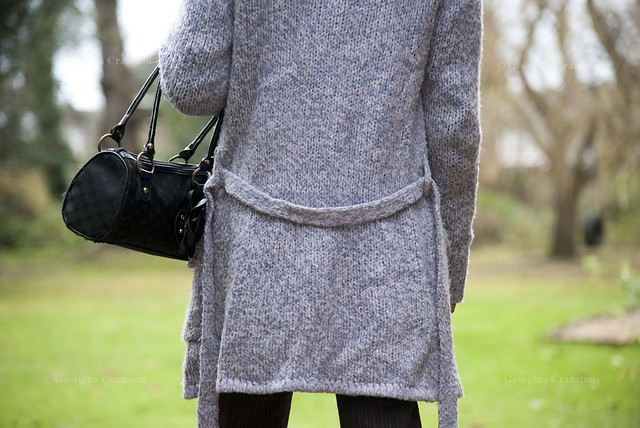

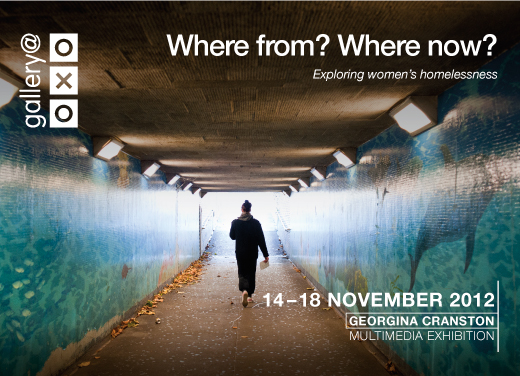
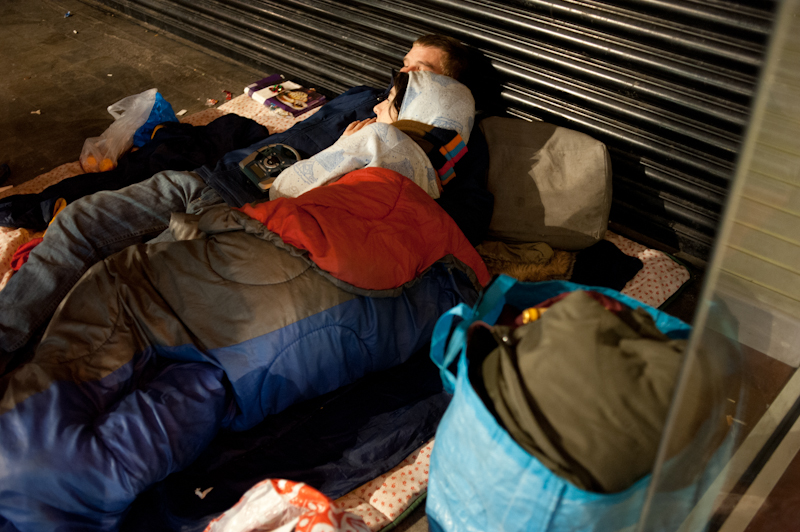 “Women’s needs are very different to men’s when they are on the street. The way to build trust and help recovery needs a completely different approach. They might have experienced exactly the same thing as a man: they may both have lost children; they may both have lost homes from relationship breakdowns; or been in care or been abused. But women don’t feel they are worthy. It’s hard to generalise, but they’re guilt-ridden by their choices. They don’t want to talk in the same way that men will. On any given day, [the majority] will be in co-dependent relationships. They are always with somebody. Getting them by themselves and being able to do meaningful work is very tricky. Women are definitely the minority and hard to reach.”Kath Sims, Manager of St Mungo’s Westminster Outreach Team
“Women’s needs are very different to men’s when they are on the street. The way to build trust and help recovery needs a completely different approach. They might have experienced exactly the same thing as a man: they may both have lost children; they may both have lost homes from relationship breakdowns; or been in care or been abused. But women don’t feel they are worthy. It’s hard to generalise, but they’re guilt-ridden by their choices. They don’t want to talk in the same way that men will. On any given day, [the majority] will be in co-dependent relationships. They are always with somebody. Getting them by themselves and being able to do meaningful work is very tricky. Women are definitely the minority and hard to reach.”Kath Sims, Manager of St Mungo’s Westminster Outreach Team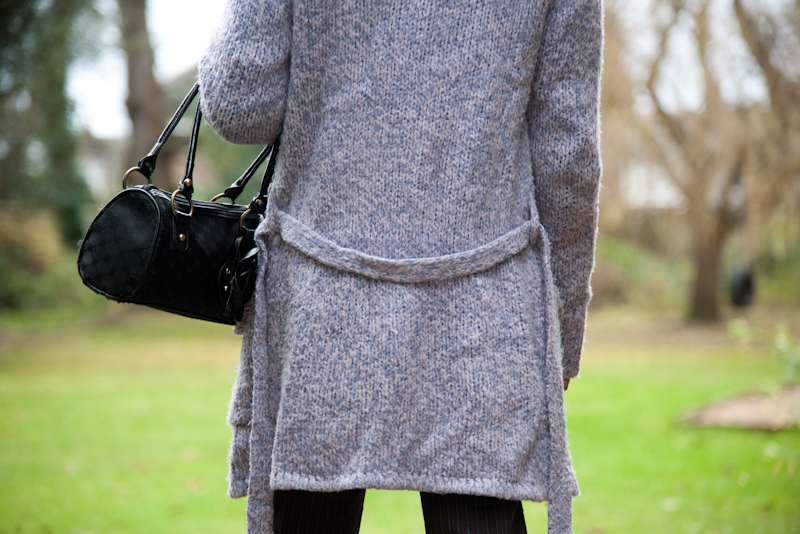 “Not every single male client and every single female client fall into this pattern but on the whole I’ve found that male clients are more open to receiving help and often feel that they deserve it – which they absolutely do. Female clients seem to feel that they are undeserving of the help or that they shouldn’t need it and should be more self-sufficient. That means it’s a lot harder to make the initial connection and we have to break through a harder exterior that they’ve put up because of rough sleeping or domestic violence or substance use. They can be harder to reach.”Kate John, Activities Development Worker, St Mungo’s
“Not every single male client and every single female client fall into this pattern but on the whole I’ve found that male clients are more open to receiving help and often feel that they deserve it – which they absolutely do. Female clients seem to feel that they are undeserving of the help or that they shouldn’t need it and should be more self-sufficient. That means it’s a lot harder to make the initial connection and we have to break through a harder exterior that they’ve put up because of rough sleeping or domestic violence or substance use. They can be harder to reach.”Kate John, Activities Development Worker, St Mungo’s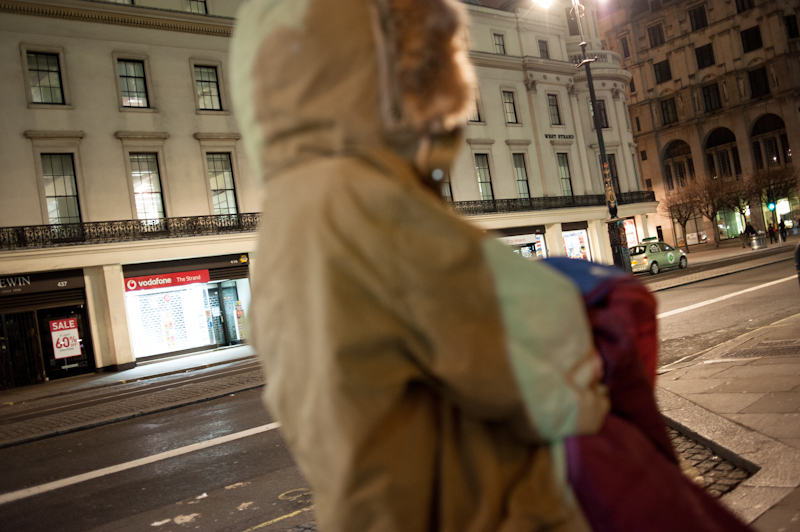 “The majority of women I’ve worked with feel a failure. All that they live for is to have some sort of contact with their child. If the child’s been fostered, or in care with a family member, there’s a chance. But if the child’s been adopted then there’s no chance the mother is going to have any access rights. We look at other things to make them look to the future – but they are blinded by it.” Kath Sims, Manager of St Mungo’s Westminster Outreach Team
“The majority of women I’ve worked with feel a failure. All that they live for is to have some sort of contact with their child. If the child’s been fostered, or in care with a family member, there’s a chance. But if the child’s been adopted then there’s no chance the mother is going to have any access rights. We look at other things to make them look to the future – but they are blinded by it.” Kath Sims, Manager of St Mungo’s Westminster Outreach Team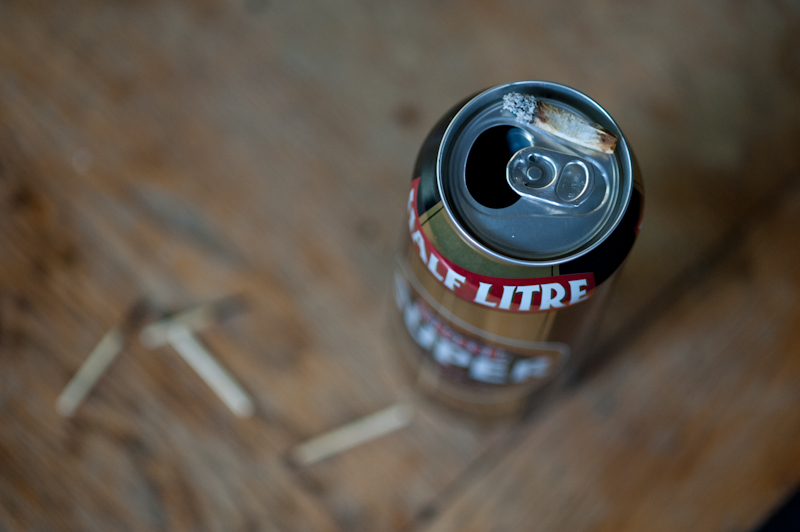 “We are seeing women who are trying to use their bodies in all sorts of ways, like drugs and alcohol, to cut off their memories. I think getting pregnant works in that way. When they have had very poor childhoods, many women may attempt to rewrite the story and have a child in order to be a very different mother. It’s an absolutely devastating sense of failure when it doesn’t work.” Gabrielle Brown, Psychotherapist for St Mungo’s Life Works Team
“We are seeing women who are trying to use their bodies in all sorts of ways, like drugs and alcohol, to cut off their memories. I think getting pregnant works in that way. When they have had very poor childhoods, many women may attempt to rewrite the story and have a child in order to be a very different mother. It’s an absolutely devastating sense of failure when it doesn’t work.” Gabrielle Brown, Psychotherapist for St Mungo’s Life Works Team 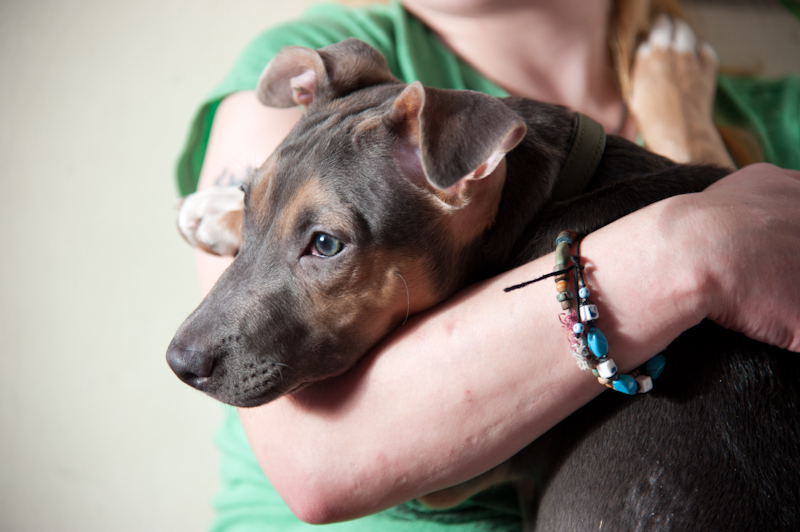 “Women are deemed homemakers and a lot of them feel that once they’ve lost their family, their children or their home they are not successful. We’ve supported women through pregnancy, through successful detox and then through living with their babies and their children. But for some it’s not something they’re going to achieve, and we can’t give them a goal that’s unrealistic. Some of the children have been abused, have been left with no food or for hours on their own. The women are not going to be reconnected, their children have been adopted. So it’s often about supporting the women to learn to live with that.” Stella Wells, Manager of St Mungo’s South London Women’s Service
“Women are deemed homemakers and a lot of them feel that once they’ve lost their family, their children or their home they are not successful. We’ve supported women through pregnancy, through successful detox and then through living with their babies and their children. But for some it’s not something they’re going to achieve, and we can’t give them a goal that’s unrealistic. Some of the children have been abused, have been left with no food or for hours on their own. The women are not going to be reconnected, their children have been adopted. So it’s often about supporting the women to learn to live with that.” Stella Wells, Manager of St Mungo’s South London Women’s Service 